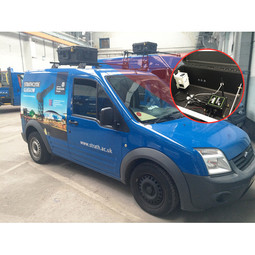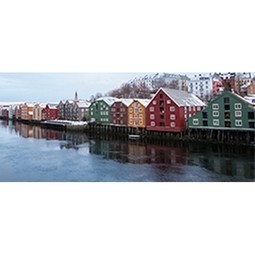Case Studies.
Our Case Study database tracks 8,303 case studies in the global enterprise technology ecosystem.
Filters allow you to explore case studies quickly and efficiently.
-
(4)
- (2)
- (1)
- (1)
- View all
-
(3)
- (2)
- (1)
-
(2)
- (2)
- (2)
-
(2)
- (2)
- (3)
- (1)
- (2)
- (2)
- (1)
- (1)
- (4)
Selected Filters
4 case studies
|
Mobile monitoring system: Vehicles with sensors to control air quality in Glasgow
Libelium
Countries throughout the world have a need, and in many cases a legal obligation, to ensure air quality is meeting specific standards. Policies aim to reduce exposure to air pollution, by reducing emissions and setting limits and targets for AQI. Public authorities in cities have deployed static stations to monitor air quality data for a set of pollutant with specific, and high cost, sensing technologies. These stations provide highly accurate data but their cost limits the quantity of deployments, leaving large gaps in coverage.
|
|
Saving Water with Smart Management and Efficient Systems
Libelium
Water and electrical supply are two of the main concerns for public authorities. The demand of these resources grow as fast as the population in urban areas so they would become scarcer with the pass of the years. A Technavio report states that the use of smart water management technologies such as Big Data, sensoring and monitoring in real-time can help save more than USD 12 billion revenues for utilities annually.
|
|
Enhancing Environmental Control and Reducing Emissions in Nordic Smart Cities
Libelium
Municipalities and public institutions are concerned about air, water, noise or lighting pollution in cities. In the last years, it has become mandatory through several international regulations to reduce emissions that could impact in the environment and also inhabitants lives.Being a Smart City is more than just a trend, is a commitment with society and stakeholders.Carbon Track and Trace Project (CTT) aim is reducing CO2 emissions, combating climate change in cities and also developing a decision support system for cities greenhouse gas (GHG) emissions monitoring. It was funded by the Low Carbon City Lab flagship of the EU Climate KIC programme.
|
|
Reducing logistics’ environmental impact by air quality monitoring
Libelium
More than 84% of world trade is mobilized by maritime transport. The integration of land transport with ports has become essential and has had an impact in the complexity of logistics connections. The dynamic nature and importance of maritime transport have repercussions on the environment in the form of noise and air pollution or traffic congestion, among others. Despite the fact that CO2 emissions of container vessels are, comparatively, much lower than air freight emissions, a very large 18,000 TEU container vessel emits 3 grams of CO2 per tonne/kilometer. Recent studies also suggest that maritime transport contributes to 3.5 – 4% of the pollution with sulfur, a highly carcinogenic agent.
|







